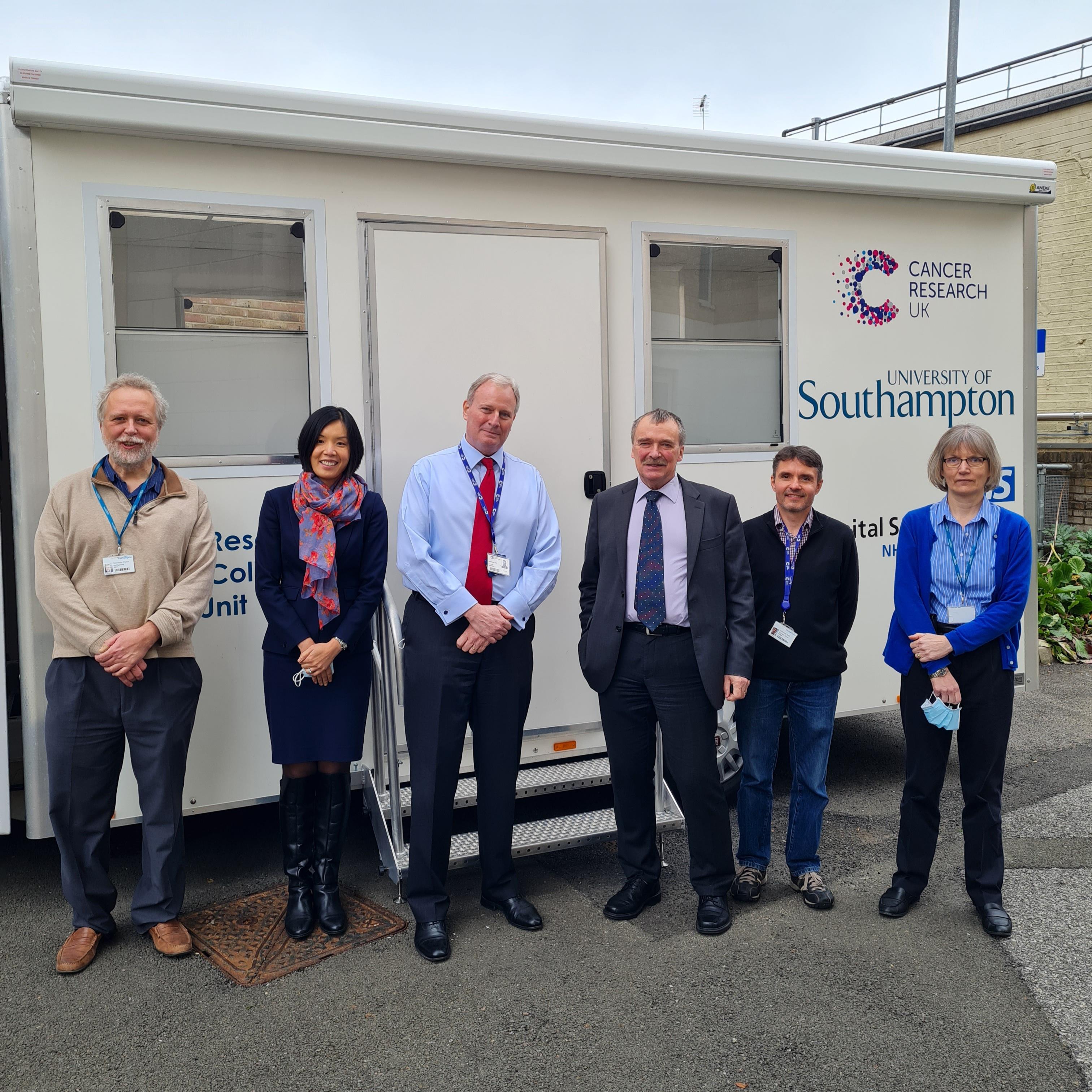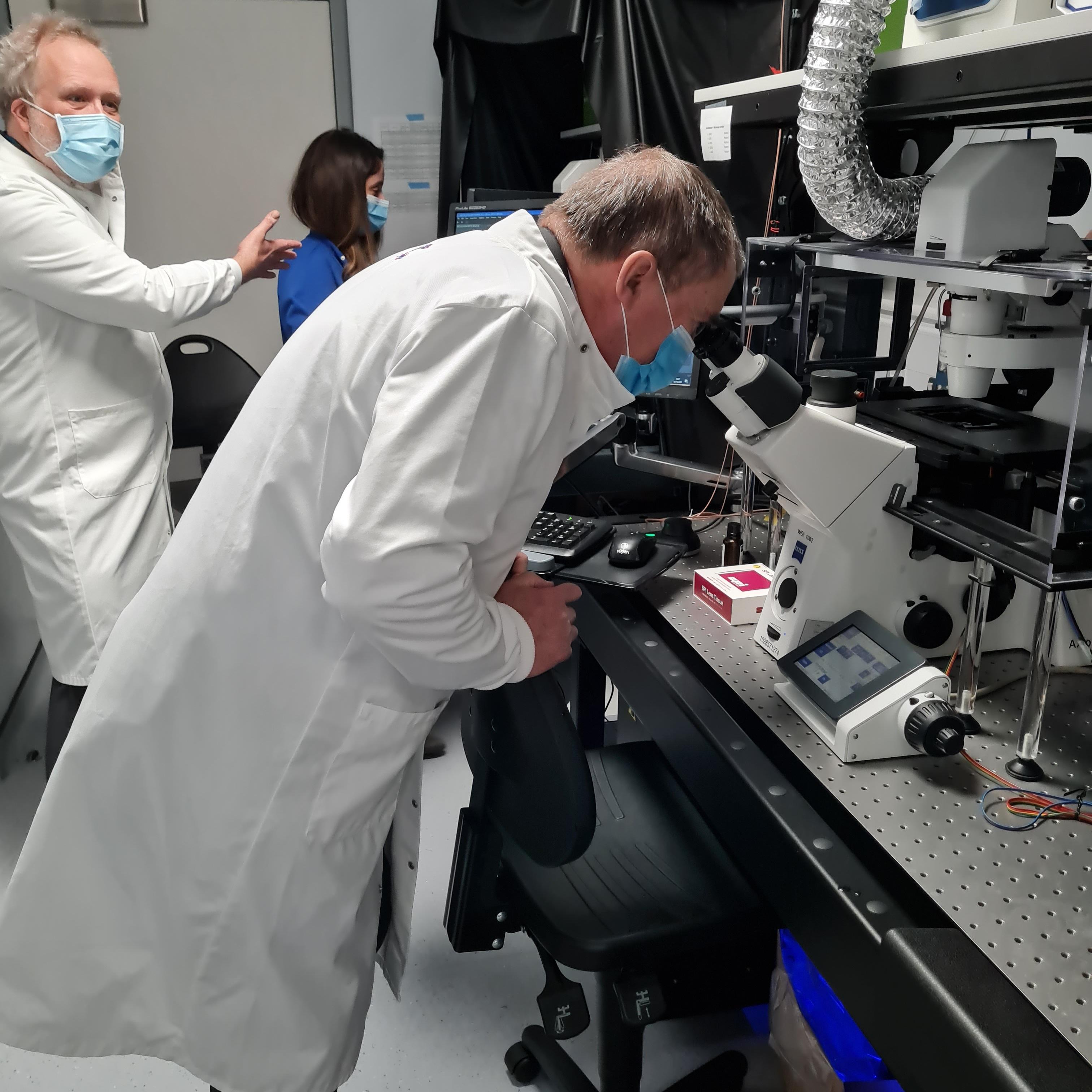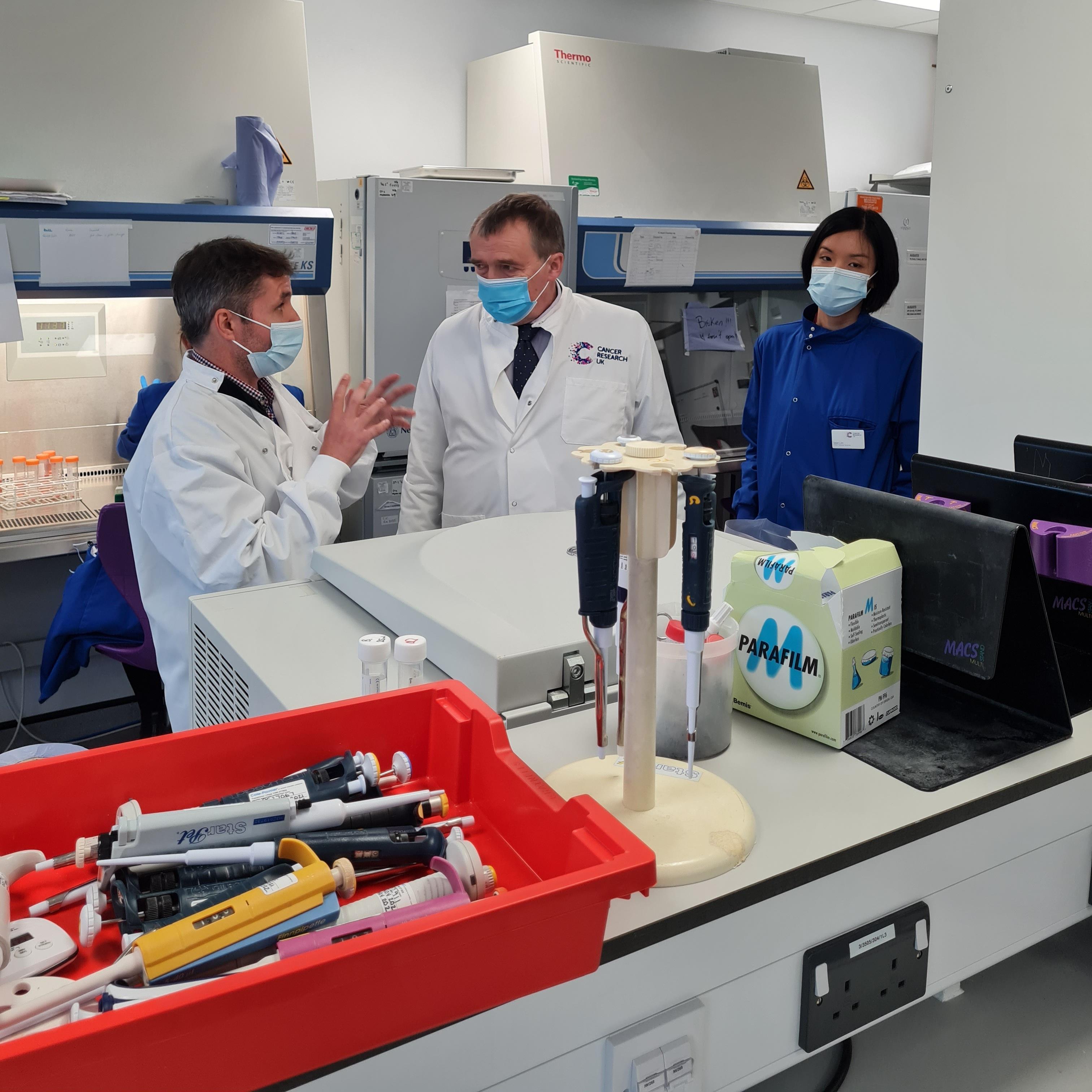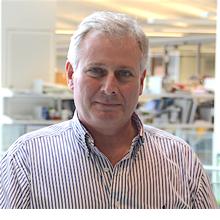Cancer scientists welcome MP to see research in action

Scientists from the CRUK Southampton Centre, based at the University of Southampton, welcomed Dr Alan Whitehead MP for a recent visit.
Dr Whitehead spent time speaking with senior scientists as well as early career researchers who are leading studies in antibody therapy and early detection as well as discussing how COVID-19 has impacted research.
The visit, organised by CRUK, included tours around the Centre for Cancer Immunology as well as the new iDx Lung trial van.
Dr Sean Lin discussed her recent studies evaluating immune responses in patients with lymphoid cancers to COVID-19 vaccines.

Dr Whitehead, who is the MP for Southampton Test, also spoke with Professors Sally Ward and Raimund Ober about their CRUK-funded study which is finding ways to better engineer Antibody-drug conjugates (ADCs), a new form of treatment that delivers toxic payloads to cancer cells.
They also spoke about using advanced microscopy techniques, which Professor Ober is developing which allows important immune molecules to be tracked in immune cells.
Professor Mark Cragg discussed the work carried out by the Antibody and Vaccine Group on immunomodulatory antibodies, describing their potential to reinvigorate the ability of immune cells to find and kill tumour cells.

Professor Peter Johnson spoke with Dr Whitehead about the new iDx Lung trial which is analysing CT scans, nasal swab and blood samples of patients attending screening clinics to identify changes that could indicate the early signs of cancer developing.
He said: “We were very pleased to welcome Dr Whitehead to our Centre to discuss the pioneering research taking place in Southampton in the fight against cancer. It’s really important to show policy makers first-hand the importance of basic scientific discovery and how it underpins our work in the clinic. We need their support, whether it’s in legislation, policy or funding, to continue to find ways of treating this disease, which remains one of people’s biggest health concerns.”
